Text
Wip
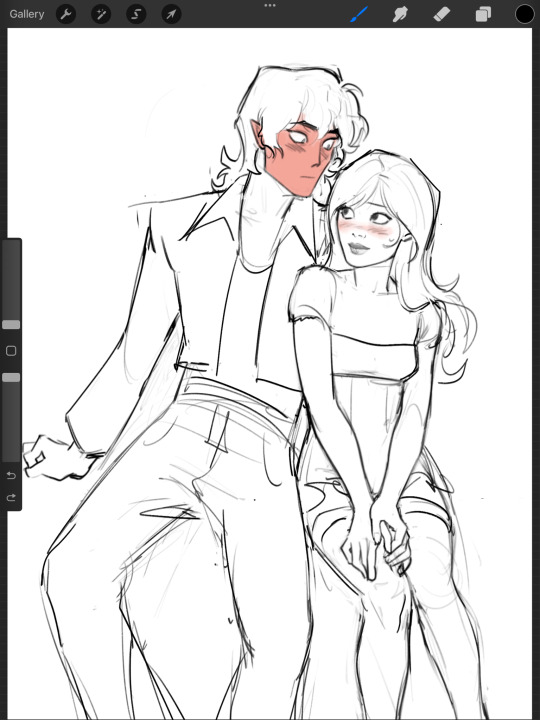
13 notes
·
View notes
Text
you have so much to do, and i have nothing ahead of me
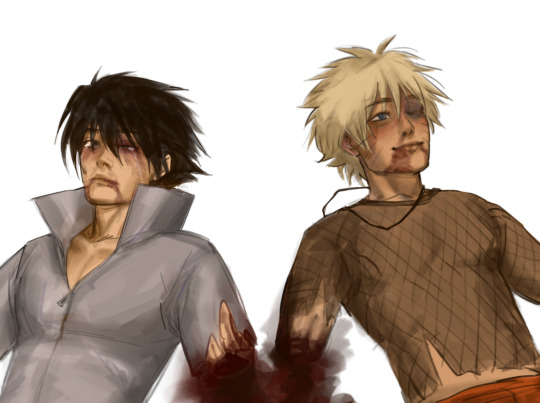
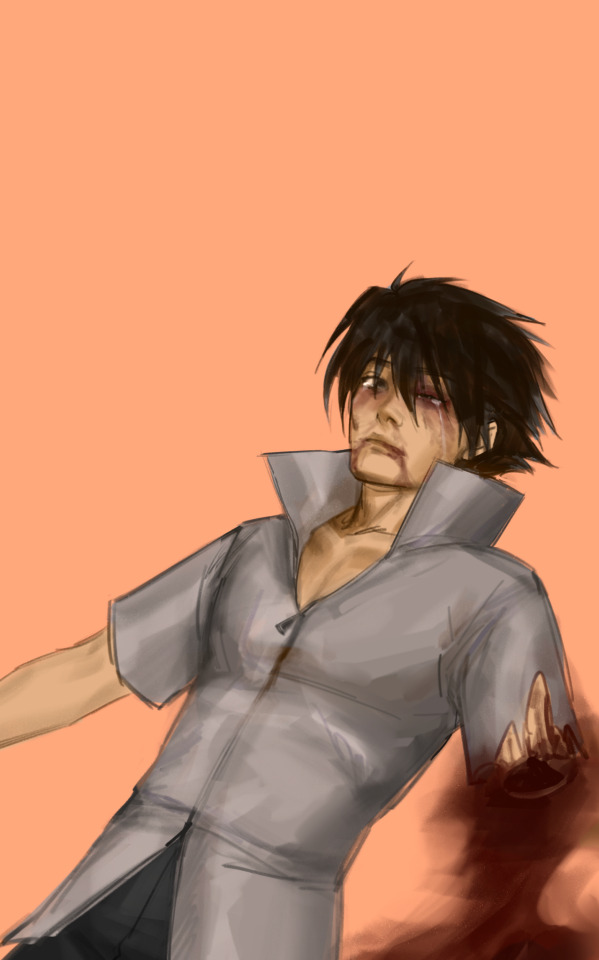
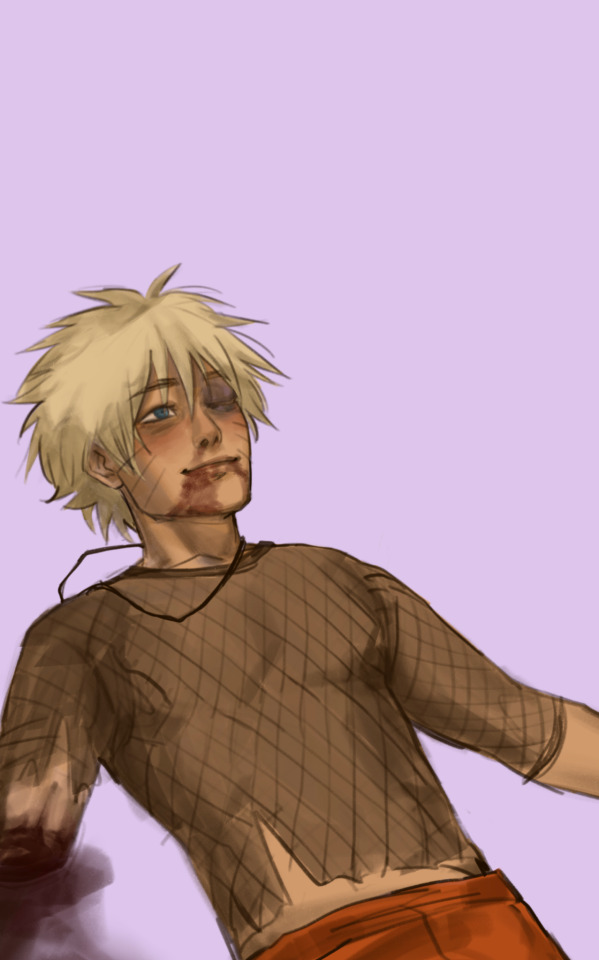
#fanart#naruto fanart#naruto#naruto uzumaki#sasuke uchiha#the saddest part about them is that theyre just kids!!!#man#mitski#forgot mitski tag
60 notes
·
View notes
Text
madara
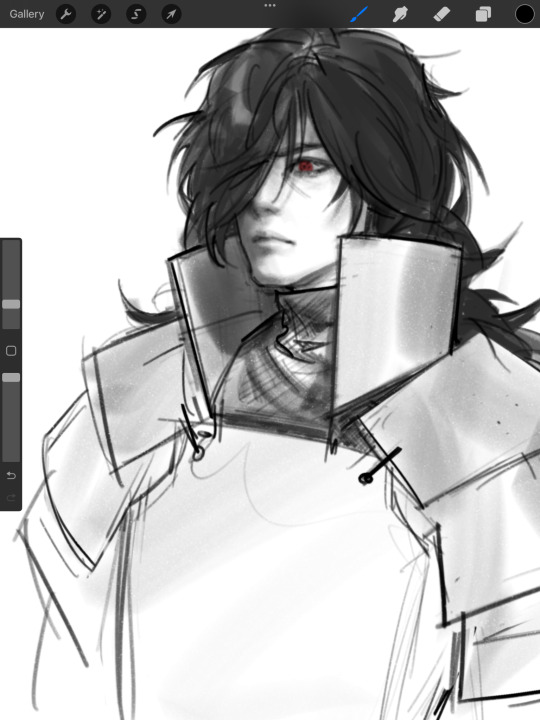
619 notes
·
View notes
Text
jjk mid asf
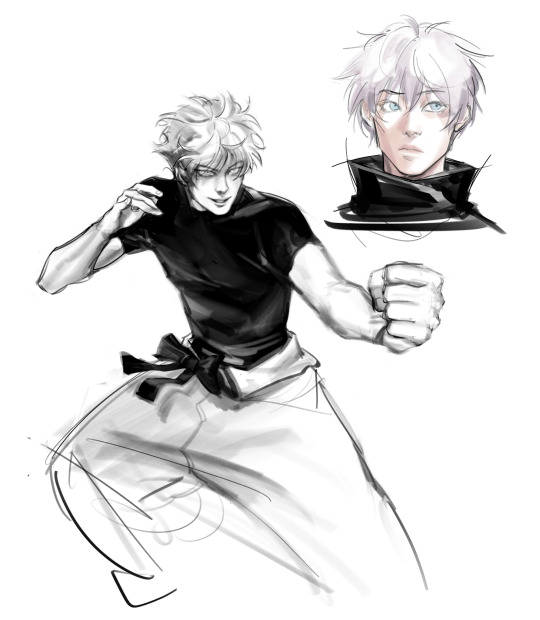
90 notes
·
View notes
Text
crunchy sketches
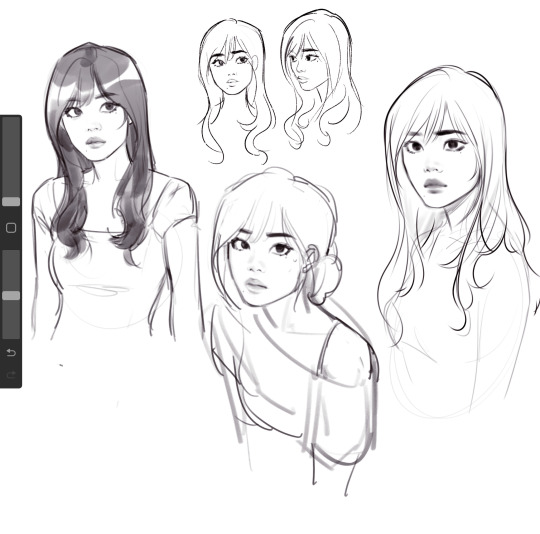
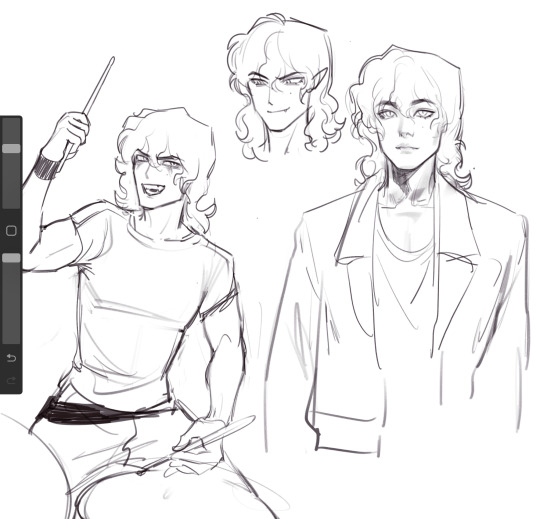
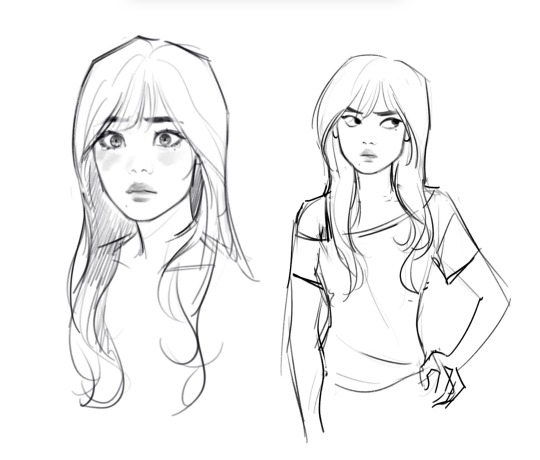
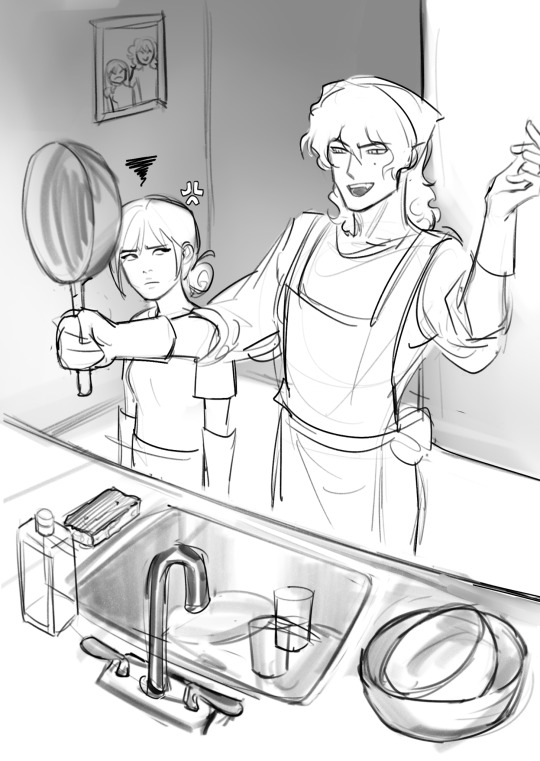
#oc#philippines#original character#anime#philippine mythology#mythology#aswang#vampire#magical girl#filipino#sketches
35 notes
·
View notes
Text
domestication (+bananafication)
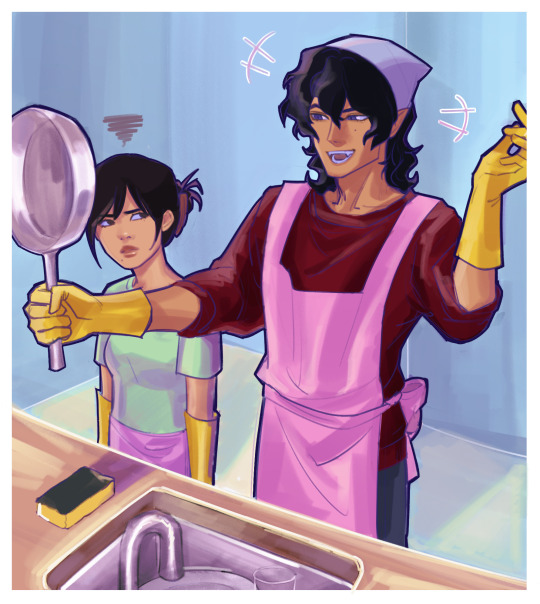

#oc#philippines#original character#anime#philippine mythology#mythology#aswang#banana cat#magical girl#filipino#domestic fluff#vampire
31 notes
·
View notes
Text
“You are the knife I turn inside myself; that is love. That, my dear, is love.”

#oc#philippines#original character#anime#aswang#vampire#filipino#magical girl#philippine mythology#mythology#this was a sketch i didnt intend on finishing so it looks kinda bad pls dont be mean
22 notes
·
View notes
Text
Howl’s moving castle doodle
(in my mind they are both asian)
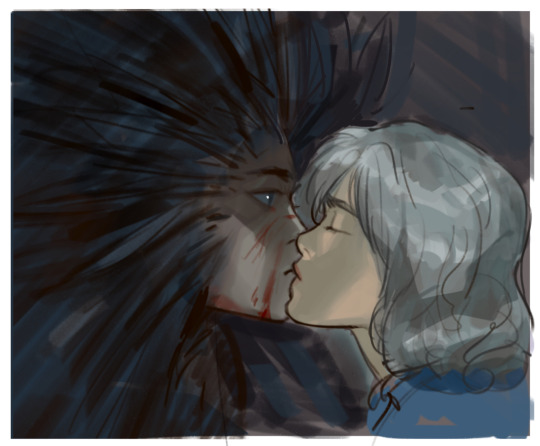
#howls moving castle#howl pendragon#howl jenkins pendragon#sophie hatter#studio ghibli#hayao miyazaki#fanart
123 notes
·
View notes
Text
Oc dump (non fandom)!!
Marisol is a university student with a secret family background in magic and spirituality. Her ancestors were persecuted and thus there aren’t many people like her left and later generations did not teach their kids about their magical heritage (and were pretty much unaware bc magic potential can skip generations) and thus, shes disconnected and teaching herself how to manage and cope with her newly-manifested powers. She has great potential but she has a long way to go.
Alejandro is a vampire aswang. He is 200+ years old and accidentally got himself bound to Marisol. In an attempt to attack her, Marisol unintentionally cast a spell on him in self defense that would bind him to her as her familiar. Now they live together. This is set in a world in which magical things are hidden in plain sight so there are communities of aswang and other magical non-human human adjacent creatures that are “around” but to humans they’re either deemed as myths, urban legends, or ignored.
Mari and Ale start off as enemies that are forced to be around each other but eventually they start to enjoy being in each other’s company.



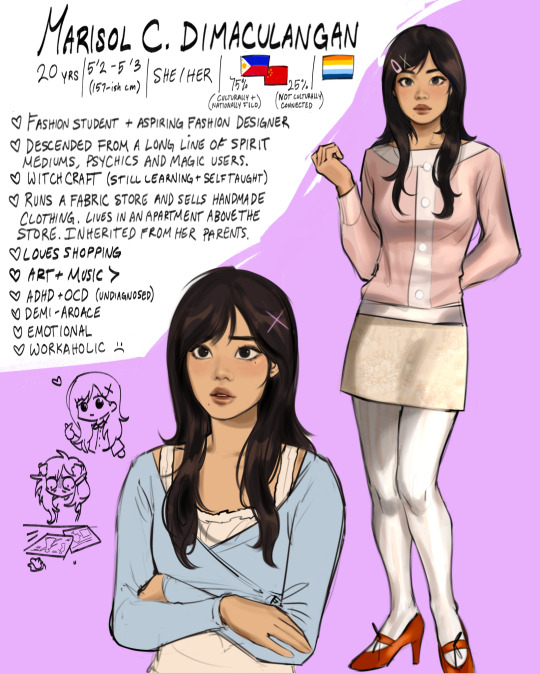
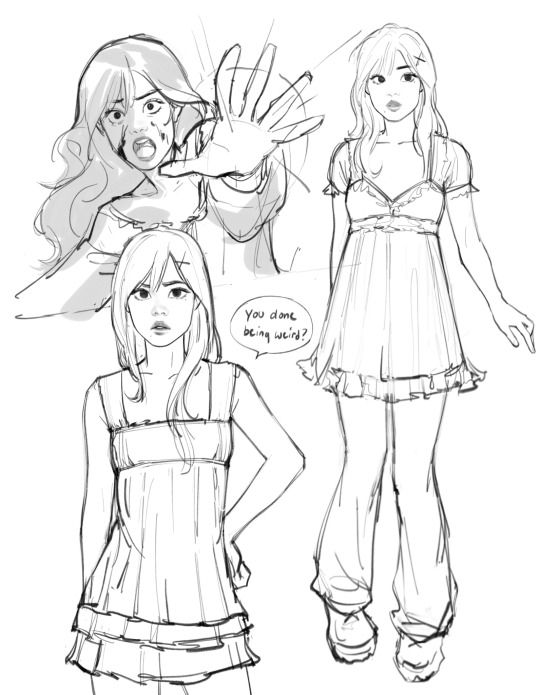

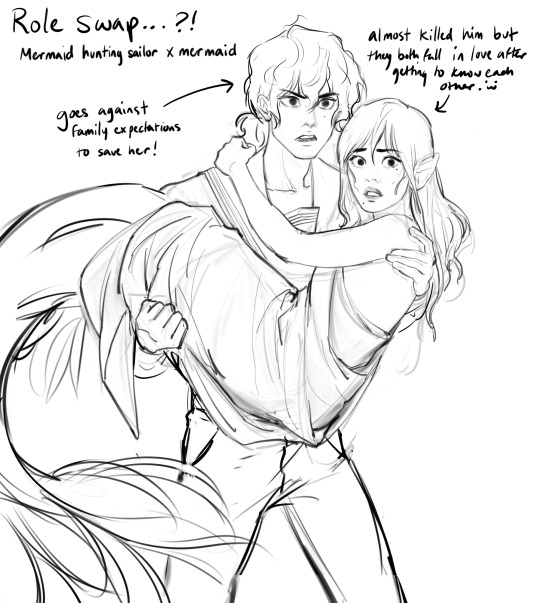

#oc#philippines#original character#aswang#philippine mythology#vampire#magical girl#enemies to friends to lovers#aroace#demiaroace
18 notes
·
View notes
Text
This was a sketch i colored so its not fully rendered but drew my hws philippines oc in canon hws philippines outfit..
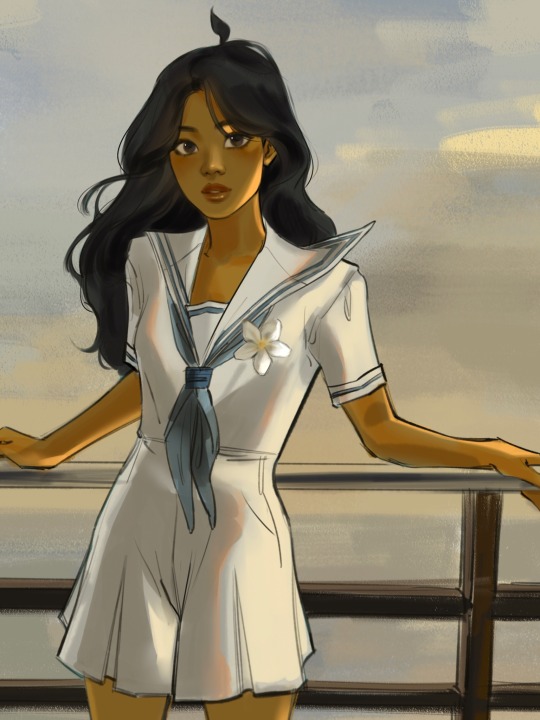

#hetalia#aph philippines#hetalia oc#oc#philippines#aph oc#hws philippines#anime#should i keep the design#she probably stole his clothes and cut it up#tailored it to fit her#she ate him up so bad its embarassing
142 notes
·
View notes
Text
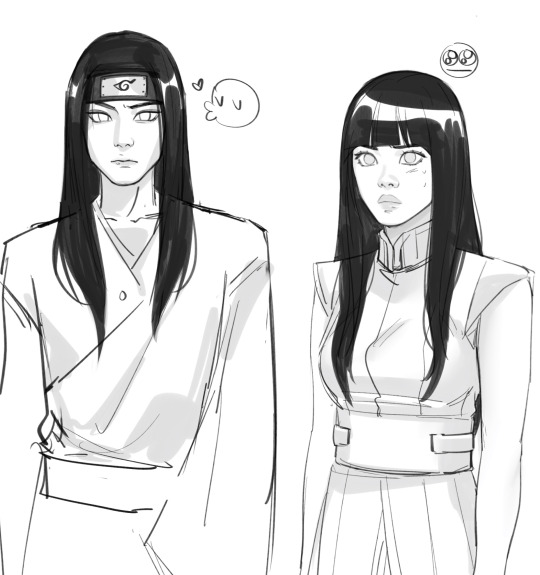
i love the hyuga
#im afraid to post this#because im a hinata apologist#i also have controversial opinions about the show that i kinda wanna say but i also dont so nvm#love all the characters though actually#neji hyuga#hinata hyuga#naruto fanart#naruto#hyuga clan#anime#naruto shippuden#hinata is my fave though ARGHH
1K notes
·
View notes
Text
pretty good looking family if u ask me

#naruto#naruto fanart#sasuke uchiha#madara uchiha#itachi uchiha#shisui uchiha#sasuke fanart#madara fanart#itachi fanart
8K notes
·
View notes
Text
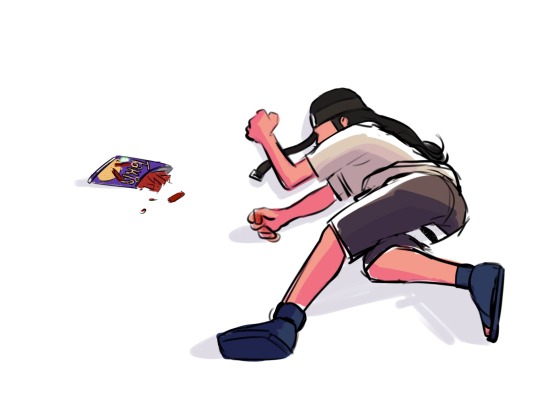
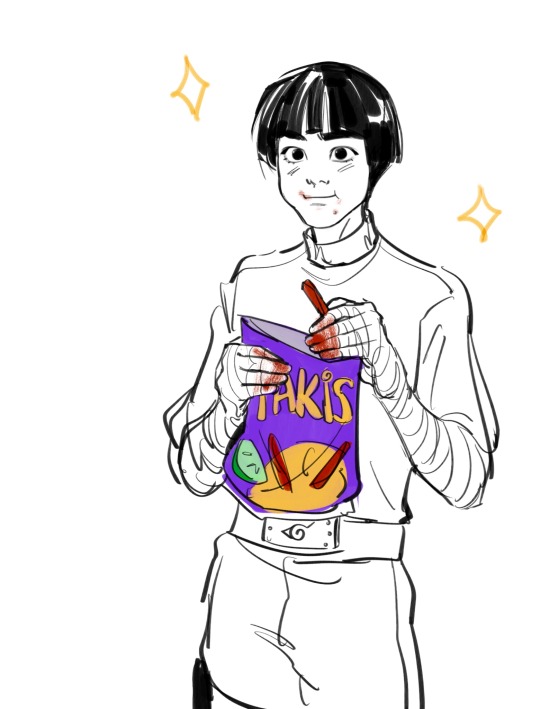
Neji cant handle spicy food… but lee can (can i attract the attention of naruto fans?)
2K notes
·
View notes
Text
RACEBENDING PERSONIFICATIONS OF IMPERIALIST NATIONS: LET'S TALK ABOUT IT
PREFACE:
Before you read this, I totally recommend reading @peonycats ‘s entry about racebending in Hetalia. Link here
It adds a ton of context to what I'm about to say! It really helps me out too because I already feel like I have to over explain my points because I'm afraid people will misunderstand or misconstrue what I say.
I'm not trying to attack or force anyone who enjoys racebending countries to stop whatever they’re doing, (especially USA and Spain— both of whom I'm going to talk about in this reblog). I am not accusing anyone of anything. My opinion is pretty much based on my personal experiences as a monoracial, visibly ESEA passing, filipino person of color (ik that's a lot of labels but i want to be very thorough) living as a marginalized racial and ethnic minority in the West. I encourage you guys to please read what I have to say and at least respect my opinion as to why I don't exactly approve of racebending imperialist, colonialist, and settler nations as any marginalized ethnic minorities living in said nation. I hope my perspective may change or offer insight or advice to anyone on the opposing side. I think racebending is usually, typically, fine outside of Hetalia but much like what Peonycats said, racebending within the context of Hetalia becomes very complicated.
Disclaimer: do not feel bad for me or give me any pity. I just ask anyone to sympathize and try to understand my experiences as I am doing the work to connect with my heritage at my own pace and in my own way.
Here is an alternate link to this entry on google docs that may be easier to read.
PART ONE: HETALIA AMERICA
THE MYTH OF MULTICULTURISM - 1
As someone of Filipino descent who was born and raised in the United States, the amount of isolation I feel can be tough to deal with. I'm sure anyone who is a part of a diasporic community, living away from their ancestral home who doesn't have a cultural hub in their area with people they can relate to can definitely understand this feeling. Not to get too personal, but my parents moved to the United States when they were still in their late teens/early adulthood and they’ve been living in the United States longer than they have in the Philippines.
I am very grateful for the life I have lived being raised by my parents who did everything they could to give me everything they did not have when they were younger. They work very hard and they are successful in what they want to achieve. However, I will not ignore the fact that this success and the fact that they have been able to get ahead is because they are nearly— almost fully assimilated into American culture. They were able to keep their bilingualism and many aspects of our culture due to having moved here in what was basically their twenties, but my parents did not prioritize teaching me Tagalog or a lot about our family history and culture. I knew I was Filipino growing up but the absolute lack of exposure to my own culture outside of my immediate and extended family left me fairly disconnected. I did and said a lot of stupid stuff in my youth and it took me a very long time to unlearn the internalized racism that developed due to my standing as one of the only Filipino kids in school— before and after I moved to Long Island from NYC.
I do not blame my parents for my disconnect. I understand they felt it was important for them to assimilate as much as they could in order to give our family the best life possible. My mother does not want anything to do with the Philippines beyond being what is essentially a tourist on vacation— and it is not my place to judge or scrutinize her for that attitude, her personal relationship with her home country is her own. However, I personally want to be reacquainted with my culture and have a connection to the Philippines and I am sad (of course) I didn't get much of an opportunity for that growing up. My entire family is essentially, almost, assimilated. Many of my uncles and aunts attended HIGH SCHOOL in the United States and most of their children (my cousins) do not speak Tagalog or retain a substantial connection to the culture.
I connect with my ancestry by studying the history and politics of the Philippines. It's why I’ve been stuck in this fandom for so long— I can't seem to part with my Philippines ocs that brought me much comfort to research and make content of. History and politics are both things I found that are extremely important to me because my entire existence is so heavily racialized having lived in the United States. It brings me comfort and security to continue learning and taking in knowledge that I can use to then defend my existence— the context that my racial and ethnic identity brings that is impossible for me to part with in Western society. However, I feel an extreme amount of guilt because sometimes it feels like I am only able to connect with the Philippines on an intellectual level— a historian who has never lived the lives of the people they read and study about. I don’t have the lived experience of being in an area of people LIKE me culturally and ethnically. I do not know what it's like to be part of an ethnic majority. I've been in environments in which I was a part of the racial majority, but there were many instances of tension among different ethnic groups that isolated me further because Filipinos were still an ethnic minority. Regardless, I was still the minority in all the spaces I've been in.
This brings me to my first big questions:
Why don’t I find joy in the racebending of the White settler, imperialist nation in which I was born and raised?
Why wouldn’t I support the concept of personifying a white settler imperialist state as its marginalized racial and/or ethnic minority and making them the face of American Imperialism?
I embrace my identity as a FILIPINO-American. I bear no connection to the American identity outside of my Filipino identity and that I have lived my life navigating American society as a Filipino woman— therefore my surroundings shaped my experiences and opinions. I do not want the validation or approval of American society in the form of seeing my marginalized identity or my ethnic/racial background represented as a country that has done little to nothing to prioritize or actively recognize and address the struggles of underserved communities historically and currently.
I am a Philippines Centric creator and blogger because I want to represent my heritage. I do not crave the acceptance and recognition of the state that oppresses me. I create my own representation using my country of ethnic origin. I do not want to see myself; the colonized — in a — MY colonizer.
I do not like Hetalia America being represented by a Black, Brown, or POC person because the solution to getting ahead socially and economically in American society — especially for non white immigrants — is the assimilation, the sacrifice, the erasure, and commodification of non-white cultures.
I do not want a POC; one who would absolutely be a victim of this cruel, violent, and system of White supremacy, be the face of a nation in which the price for tolerance (not acceptance) is the orientalization, the commodification, the erasure, and the assimilation of people of color and their cultures and their identities.
Despite their success and the number obstacles my parents overcame in their lifetime, there will always be another glass ceiling they have yet to break when compared to the number of White American families that needn’t worry about housing, employment, or money because they will have access to an economic and racial safety net in the form of generational wealth that came from 300+ years of slavery, worker exploitation, segregation, colonization, and the systematic upholding of institutions that propels the white population to the social, racial, economical TOP and forcibly bolted POC to the bottom of the hierarchy. My parents will always have to work 10x as hard to make a comfortable living than a white person who makes the same.
I am tired of seeing people represent the struggle of poc grappling with their conflicting identities as one who was colonized or marginalized and one who also upholds the same system that has hurt SO MANY PEOPLE. In my opinion, this depiction shifts blame to the victims of American society and avoids accountability to White America that actively pits POC Americans against each other in order to distract us from the real root of our issues. While it is important to address the problem that is the POC that upholds a White Supremacist system and/or weaponizes their identity as a marginalized group to, again, uphold a racist system, POC Hetalia America is counterintuitive in the long run because he suddenly becomes extremely racialized and is unable to be separated from his identity and context as a POC. Therefore, it becomes impossible to address the issue White supremacy separately as its own entity because POC in America— especially if you are visibly and functionally non-white presenting, can NEVER be parted from the context that their racial and ethnic identities bring.
The US, being a settler nation, is a nation intended for RACIALLY WHITE PEOPLE. US imperialism has resulted in an irreparably damaged system in which it will never fully accept people like me within my lifetime. I do not need to see myself as a POC in a POC Hetalia America.
THE COLONIZED IDENTITY IN THE WEST - 2
CW: mention of racially charged sexual violence in the second paragraph.
Again, as a racial and ethnic minority in the west, it is IMPOSSIBLE for me to part with the context of being a visibly ASIAN, feminine presenting person. It is entirely possible for people, regardless if they live in their home country or in the diaspora, to be able to disassociate from their racial and ethnic identities if they are living in an area in which people share the same experiences, culture, and identity. However, since I do not, I am CONSTANTLY thinking about my race, my ethnicity, and the history that has contributed to my marginalization. This does not mean I do not actively try to move past race. However, in order for me to do that I have to recognize the fact that my race is an intrinsic part of me and it plays a major part in my life. With recognition comes education, change, and reform.
I am never not thinking about my place in society as a hyper-feminized Asian woman and how racial fetishization is so casual, commonplace, and something I can probably never escape. The United States’ imperialism of the Philippines and other Asian nations has contributed to the culture of fetishization and race based sexual violence against ESEAsian women in particular. The trend of white men that go to poor Southeast Asian countries for sex to take advantage of murky laws and corrupt justice systems is rooted in the West’s imperialist history against the East and the West’s entitlement they have to our bodies that has been reinforced through said violent imperialism. It is insanely deep rooted and I detect the remnants of American Imperialism of the Eastern world whenever I talk to a man, whenever I go online, and in the media in the form of casual perpetuation of racial violence against ESEAsian people. I DO NOT want a POC to be the face of a nation that has allowed for this mentality to thrive and has done nothing to try and reverse the effects of their actions or make amends for it.
I do not want the face of the country that has colonized my ancestral homeland for nearly half a century to also be a victim of the same system. I do not want Black Americans, First Nation peoples, and POC Americans represented as the hyper-capitalist dystopian colonizer that historically and currently siphons an unfair amount of wealth and labor from its overseas former and current colonies, its immigrants and minorities, and its own people.
As I’ve said before, people of color are completely capable and oftentimes very complicit in upholding systems that oppress others. However, by making a POC, the colonized, the face of this system through a nation personification insinuates that POC are the backbone and root of this problem. It deflects accountability and the real history that comes with living in a white supremacist state. Even I am inherently complicit with American imperialism because I live on land that is not mine and have benefitted from it. It is extremely important that we recognize our complicity and privilege as those who live and/or were born in the United States and LEARN so that we may give back to the community by being able to educate and be educated. And with that knowledge, we may push for reform and right the wrongs of the American government through voting, participating in local politics, and the like.
The culture war between the Filipino-American Diaspora and Mainland Filipino cultures are very apparent. Filipino-Americans are called out for self-orientalizing, self hatred/racism, and being disconnected from Filipino culture— as Filipino-Americans may be considered “less Filipino” by mainlanders since they do not live in the Philippines and are considered WHITEWASHED. I believe that Filipino mainlanders, as well as Filipino-Americans both have valid complaints about each other and I do believe we should work to mend the division that was created between us by addressing the issues we have with each other and coming to further understandings of one another.
But this brings me to another point: why would I want a POC America when the reason why I am considered less Filipino among mainlanders is, in part, because I am from this country? This country that promotes itself as being a melting pot but contrastingly constructs an environment in which POC feel pressured to assimilate and become culturally disconnected which ultimately makes people from their home countries reject their own? Since Mainlanders do not want to be associated with people they interpret as being ashamed or ignorant of who and what they are, they shame diasporic Filipinos for trying to claim the “Filipino” label and shame Filipinos for where they live/where they grew up regardless if they’re trying to reconnect or if they refuse to. The USA is the reason why I am considered less Filipino in Filipino spaces.
Not all mainlanders think this way, but it's a real issue that I need to address and I use general terms/make generalizations for simplicity’s sake.
I am proud to be Filipino, and I am proud to still be thriving as a Filipino-American in a country that was built without me in mind. I am unashamed in the hand life has given me and I reject the label of being “whitewashed” or “less filipino”. I am still able and willing to connect with my Filipino culture in meaningful ways. But I don't want a country that causes non white diasporic cultures to be considered whitewashed simply by being from there to be represented by a POC.
ALTERNATIVES? - 3
POC do not owe any loyalty to a country that has vilified, excluded, and marginalized us. In my opinion, it is not possible to reclaim something that was never meant for us.
By making a singular personification that represents the multiculturalism of American society by making Alfred a POC, it promotes imperialist cultural propaganda based on the fabricated “cultural melting pot” that has aided in the erasure and assimilation of many cultures within the United States.
I understand the desire for First Nations representation. I completely encourage it!! But, I think it is impossible to have Alfred himself represent ALL of the MANY First Nations tribes across the United States. This is why one of my solutions include personifying the tribes themselves— making ocs. Making Alfred vaguely native american as the personification of the United States promotes the misconception that First Nation tribes are all interchangeable with one another, that they are not diverse or culturally distinctive enough to deserve an individual personification that represents them, and is reminiscent of forced assimilation efforts and cultural genocide that First Nations people had and still have to face. Research a tribe, or multiple tribes! Educate yourself on their customs and have fun learning as you’re designing an oc that can respectfully represent the culture. Allow them to interact with other ocs or canon characters. If you’re a part of a First Nations ethnic group yourself and use Hetalia as a way to reconnect and research your culture, why not personify your own tribe into its own character? I am not a part of any First Nation tribe, but personifying the Philippines and conceptualizing post colonial Philippine people and the numerous pre-colonial Filipino tribes and kingdoms into a Hetalia concept follows a similar approach. For both pre-colonial Philippines and the First Nations, it is important to represent their uniqueness and cultural independence from the ethnic majority or settler population by giving each kingdom or tribe their own personification.
As for Black/POC America, if you truly desire to represent ethnic American minorities in a personification, I honestly do not see the problem in making multiple characters/individuals that all equally represent the United States. I truly do not reject ideas of having more Black/POC American representation. I just need it to be done better with more care and thought put into it, as a POC living in the United States. The logic here is the same logic I have for First Nations representation as I mentioned above. No one personification is able to represent the ethnic and racial diversity of a nation such as the USA. The whole point of diversity is that people of all backgrounds exist alongside each other.
I am not Black, or a part of any First Nation tribe. I am a POC, but I understand that my word is not god when it comes to the representation of cultures that I do not identify with or belong to. However, POC colonized by the West were often subject to the same imperialistic formula. Based on my extensive studying of the topic of western imperialism and how it has affected many groups of people, problems caused by a common aggressor often require similar solutions. I am only trying to connect my experiences and my knowledge and apply it elsewhere. Of course this doesn’t apply to everything, but I believe that in this case it makes sense.
Lastly, I want to see people pay more attention to actual POC nations. I simply don't like seeing people complain about the lack of representation in Hetalia but then ignore the canon POC characters or avoid making ocs/researching different cultures. And instead, opt to represent POC cultures filtered through a western/white nation. It does not make sense to me. I'm sorry.
I hope this doesn’t sound too accusatory but I need some of y’all to be honest.. I feel like some of you think it’s easier to make a poc who is culturally white american or European than put research and effort into portraying different cultures and countries. That is incorrect. We all have infinite access to the knowledge and research conducted about other cultures and nations. But you can't just disregard the non west like that especially if you crave the representation of their cultures. Some of you claim to be nuanced but your interpretation is just the canon white character with brown skin.
This is not to disregard the complexity and complication that is personifying a diasporic population. The cultural legitimacy of diasporic cultures is valid, as someone a part of a diasporic Filipino culture. And personifying diasporic/minority cultures is also valid. However, from what I've seen, many of you retain the original, context of the canon White America, and White Europe, and just slap on a brown skin tone and several small design changes without depicting the nuances of the culture. Or, again, you play into imperialist propaganda based on the myth of multiculturalism no matter how much research you do.
Give us genuine, respectful representation. Go all out instead of just meeting us halfway. I think POC deserve so much better than their cultures— again— being filtered through whiteness.
PART 2: HETALIA SPAIN
CEO OF THE CASTA SYSTEM - 1
While I understand that racebending Spain is considered less acceptable across the fandom, I cannot ignore the many, many instances in which I’ve seen Hetalia Spain portrayed as a “spicy white” or POC adjacent. He is consistently drawn with very tan/dark skin and his features have changed to look less Eurocentric. I’ve also seen people straight up just racebend him to be a POC. Sometimes, people draw him much darker than the actual POC in the show. I think that's dumb. Yes, people from the Mediterranean can be tan or dark skinned in the context of other Europeans, but compared to non European people, even naturally tan Spaniards will be considered light skinned.
This is honestly ridiculous to me. Spanish/Iberian Colonization of the Philippines and Latin America were one of the most violent examples of Western imperialism— as if colonization wasn't damaging or violent in general. The Spanish instilled a racial hierarchy in the Philippines and in Latin America called the Casta system that placed Peninsulares; Spanish born people of full European Spanish descent at the top of society, and non white races at the bottom. The more mixed with Spanish you were, the higher up you were on the racial caste. Western Imperialism operates on the same general concept of White Supremacy, just in different fonts.
To go back to the United States, it is a misconception that the US did not play any part in upholding this system that the Spanish created. They did. Colorism and racism in the Philippines and among Filipino communities in the diaspora is rooted in the US imperialism era as well as the era of Spanish colonialism.
The fact that the Philippines finds it a necessity to differentiate between the different kinds of people based on race, and the fact that we use racial/phenotypic signifiers such as the word “mestizo,” “morena,” and “chinito” to classify various appearances/ancestries is an extremely outdated and a colorist and racist construct. Filipinos will often rank beauty and capability associated with your ethnic lineage.
Examples of discrimination based on race:
“Her father is a (white) American and her mother is Filipino. She is a mestiza, of course she's beautiful.”
(Filipinos mixed with European ancestry are considered the most beautiful by default. Most celebrities in the Philippines tend to be mixed race because they are considered more beautiful than the average Filipino that tends to be dark skinned and have ‘native’ features such as a flat nose, big lips, short stature.)
“She’s pretty, for a morena.”
(“Moreno” is a word used in the Philippines to describe darker skinned people. Insinuating that darker skinned people tend to be less beautiful and that she is the only exception)
“She’s not that pretty. Morenas are too dark and she should try to lighten her skin.”
“Chinitos are so handsome because of their light skin, but they tend to have ch*nky eyes.”
“She’s pretty but she has your typical Filipino flat nose and big lips. Surgery could fix that.”
Dark skin is not seen as beautiful due to colonial mentality. Featurism is also a common occurrence which is discrimination based on physical features such as nose, eye, mouth, and general face structure. Many Filipinos exhibit internalized racism and will often judge each other for their ancestral makeup and how that relates to how they look. Mestizos are the standard because of their proximity to whiteness.
Filipinos mixed with European ancestry makeup less than 3% of the population, but they are what the Philippines uses to represent itself. Many people outside of the Philippines are under the misconception that Filipinos are all mixed, we have foreign blood, we’re all mestizos and it's because Mestizos make up most of all Filipino representation. All of our popular actors and actresses (Western and from the Philippines), world beauty pageant contestants, wtc. are usually mixed with white and are functionally white/white passing.
However, colorism and racism is extremely ingrained into our communities and usage of these words cannot cease because they are often used in assistance when addressing and talking about the unfair racial hierarchy that we still see in the Philippines. In order to eventually move past race, we must recognize the effects of racism and talk about it in order to dismantle the system. This is what Spanish (and USA) colonialism has done. The fact that use of this terminology is necessary in the first place in conversations regarding racism is extremely sad and another reason why I do not believe in POC/Brown Spain. I do not want my colonizer, who instilled such a damaging, long standing, racist construct to be represented by someone who would face the same kind of racism Spain promoted.
I am grateful to have parents that tried to move past this outdated racist construct. My parents have always tried to raise me to be comfortable in my own skin. Many Filipino parents project their internalized racism onto their kids in which they would develop a complex. I do not blame them for the self hatred I felt for myself when I was younger. With the little exposure to Filipino media I had and the lack of Filipino representation in Western media, I grew up with zero representation. Filipino representation from the Philippines did not look like me— and Filipino representation in the West was virtually nonexistent. I found myself attaching to East Asian characters and media, but I was not satisfied because at the end of the day I do not have the lived experience of a culturally Chinese, Korean, or Japanese person and therefore I cannot fully identify with characters of those ethnicities.
I am Filipino and I believe I can pass as Southeast Asian, but because of my Chinese ancestry and lighter skin (my skin is lighter because I live in the West but I do tan dark. However, I do not know what I would look like if I lived in the Philippines all my life. I was dark when I was younger, but my skin lightened as I got older and because I stopped going outside lol), I can also pass as East Asian and often get mistaken for Japanese or Korean.
I would be referred to as a Chinita. Some people will question my legitimacy as a Filipino and ask me if I'm actually Korean. I’ve been told that I am not a “real” Filipino and been told that I am not allowed to call myself that because I don't look like it. Being told you look Korean or Japanese may be considered a compliment in Filipino spaces, but I think it's racist and backward. I am completely aware of the privilege I have as a lighter skinned individual, but it does not negate the racism I experience in American/Western and Filipino spaces. This is also a representation of the fetishization of East Asia and Southeast Asians that are close in proximity to East Asian-ness.
I understand that most Filipinos are darker skinned. My Philippines OCs reflect the majority dark skinned population. However it is not an excuse for others to invalidate me based on my skin tone. My desire for self-representation manifests in the characters I make. I can see myself in my Hetalia OCs as well as my non fandom ocs.
I apologize if I got sidetracked, but my complicated relationship with my own racial and ethnic identity is a result of Spanish Colonialism (and by extension, American Colonialism) and Western Race Theory. I am continuously racialized as East Asian in the West despite my fully identifying as Filipino/Southeast Asian first. I am not considered Filipino because I am also an American, and because I also look East Asian.
Of course, I reject any notions that invalidate my identity. I look Southeast Asian— I am Southeast Asian. I am Filipino. But I am TIRED of constantly having to defend myself and my legitimacy! And the reason why I have to do this in the first place is BECAUSE of Western Colonialism INCLUDING Spanish and American colonialism.
Conclusion
Why do Hetalia fans get to disregard history and harmful racial constructs by racebending white characters—white nations known for their white supremacy and imperialism all the while the victims of these constructs are left to deal with the aftermath.
I am tired of seeing marginalized cultures and people filtered through a colonizer. I am frustrated that we are told to “make our own representation,” but the artwork and stories of people who choose to represent POC cultures as their own separate characters are widely ignored. I am SO annoyed that the racebent POC version of a European country is more palatable and popular to audiences than the canon character or OC representation of the POC nation itself.
My final verdict? Do better.
RACEBENDING NATIONAL PERSONIFICATIONS: A TREATISE
DISCLAIMERS:
I AM NOT WHITE, I AM A POC. I am not writing this because I’m a butthurt white person who gets pissy when someone makes my white faves nonwhite and thus unrelatable to me for ‘some’ reason.
I AM NOT PERSONALLY ATTACKING ANY INDIVIDUALS WHO RACEBEND OR IMAGINE THEIR NATIONS TO HAVE A DIFFERENT ETHNICITY THAN WHAT THEY DO IN CANON; ON A SIMILAR NOTE, DO NOT ATTACK SUCH INDIVIDUALS FOR ME. This is a discussion of general fandom trends and a larger phenomenon, the issue I am talking about cannot be solved on an individual to individual basis.
I AM NOT TRYING TO STOP FIRST NATIONS PEOPLE FROM RECLAIMING THEIR NATIONS. As I am not First Nations myself, I would not wish to deny what these individuals emotionally and mentally reap from reclaiming their nations.
I AM NOT THE “POC AREN’T ALLOWED TO HAVE FUN AND SEE THEMSELVES IN THEIR FAVES” POLICE; I AM NOT YOUR MOM, DO WHATEVER YOU WANT. Again, this is a discussion of fandom trends and a larger phenomenon. I think it’s almost always worth examining why we do the things we do and the reasons behind a trend.
I AM NOT AGAINST RACEBENDING IN GENERAL. This is specifically an essay on racebending in nationverse Hetalia and other personified nations fandoms.
PREFACE
As stated before in my disclaimers, this essay is not intended to be a condemnation of individuals who participate in racebending. Rather, I intend to make a macro-critique of wider structures and patterns. For this reason, this essay is not accusing anyone engaging in racebending of holding any specific belief. I cannot stress enough how much I do not know you, the hypothetical reader who engages in racebending.
Again, my intent is to critique wider structures and patterns.
This essay is a conversation I would like to have with other POC and other marginalized groups, especially POC based in white, Western countries. Thus, I ask people not included in the above groups to refrain from weighing in on this.
ALTERNATIVE GOOGLE DOC LINK HERE
TABLE OF CONTENTS
The Difference in Reception for Racebent versus Non-Racebent Characters
The Inherent Politicism of Personifying Nations
The State of POC Representation in Hetalia
The Assumption of Interchangeability in POC Experience
The Myth of Multiculturalism
“It’s Just Fandom, Why Are You Trying to Control POC Who Just Want to Have Fun and Want to Represent Themselves?"
Conclusion
The Difference in Reception for Racebent versus Non-Racebent Characters
I will start this essay off with an acknowledgement of my station in the Hetalia fandom and how it uniquely equips me to talk about this topic – I am very fortunate to enjoy a follower base that primarily follows me for non-Western characters, whether they be canonical or my own original characters. As someone who mostly posts non-Western characters, I can confirm that there is a wider disparity in reception between drawings of my white characters and non-white characters. The following example is not from myself, but from the artist miyuecakes who similarly focuses on predominantly non-white, non-Western countries. You can see there is a drastic gap in the amount of notes that post focused on five nations considered to be non-Western versus a drawing of Female America.
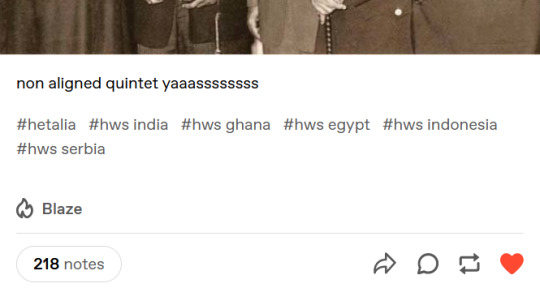
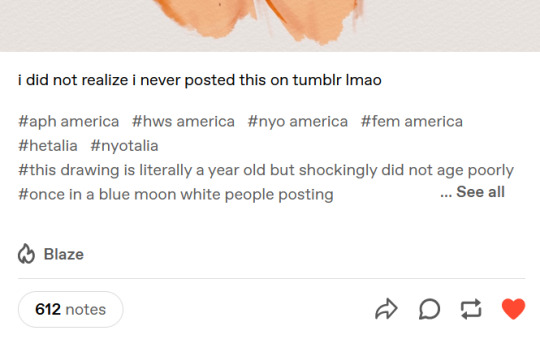
Stating this fact of the fandom is fairly noncontroversial. I would also assert that the following statement is equally true, however given recent reception, is far more controversial: “There are far more instances of racebent canonically white/Western characters, which receive far more traction than their non-racebent counterparts, whether canonical or not.”
I want to make clear what my statement is not saying:
Racebending is only done by white people seeking to score clout and diversity points without having to care about canon non-white characters. In fact, the vast majority of racebending in the fandom is done by POC looking for representation; given the amount of white canon nations compared to any other nation, POC who engage in racebending see it as a way of “evening” the disproportionate overrepresentation of white countries.
POC who engage in racebending are doing so to score clout and diversity points with a white audience. Refer to my above point.
Racebent canonically white characters are met with no controversy or racist/bigoted vitriol. It is fairly well known that there have been multiple harassment campaigns, particularly on Twitter, against artists and editors who’ve engaged in racebending even outside of the Hetalia fandom: see the Black Anya edit, Thumin’s artwork and resulting hate. POC being visibly POC in online spaces will always garner backlash.
On a similar note, I am not including POC cosplayers cosplaying white or light-skinned characters in my definition of racebending. Being angered by POC who cosplay characters of a different complexion is blatantly racist; anyone who is angered by this has nothing of value to add and not worth arguing with.
I am a bitter artist who is mad that I don’t receive enough notes on my posts with non-racebent characters compared to posts about racebent white characters. As stated earlier, I am grateful for the audience I’ve cultivated who specifically follow me for non-racebent non-Western content; I am also more than aware that my content is not what people who seek out racebent content are looking for, and have no interest in changing either my content or their tastes. The last thing I would wish to do is to label POC creators who engage in racebending as “the enemy” and POC creators who don’t as “my side.”
With that out of the way, I bring up this observation because I think it’s worth asking ourselves, POC specifically, the following questions: Why? Why is there this discrepancy in frequency and reception between these kinds of characters and content? Why do people racebend in lieu of focusing on existing POC and creating their own non-white characters?
The easy answer most would give is because white characters are over-represented and given more screen time and attention in the canon, so people, especially POC, will become attached to them and create variations of them that hit closer to home for them; this is especially the case if you are a POC who has had experiences living as a minority in a Western country. Some POC may also use racebending as a way to subvert national myths that have historically excluded people of color for a variety of racist, imperialist reasons. I know I used to subscribe towards a depiction of non-white passing America and Canada for this very reason.
In the rest of this essay I would like to examine and critique the practice of racebending national anthropomorphisms traditionally and typically depicted as white in the context of Hetalia and by extension other media involving similar premises. This essay argues that while racebending may be harmless for most other anime, Hetalia – by virtue of its content centering real life nations – carries political implications that are not necessarily appropriate.
I stress again that I can’t stop you or what anybody in the Hetalia fandom does. I do not have that kind of power nor the will to do such a thing. All I ask is for you to listen to the following with an open mind, and if there’s only one thing you take away from this, I hope it’s to realize that POC in particular have valid reasons to dislike racebent depictions of white nations; holding such a stance does not make them anti-POC representation and somehow no longer POC and instead, a member of the white oppressor class.
The Inherent Politicism of Personifying Nations
Firstly, I repeat that a series about personified nations is deeply political and every creative choice carries political and socio-cultural ramifications, whether intentional or not and made by the creator or the fan. Even if you mostly interact with Hetalia in a depoliticized context, others may not, and given that nationverse Hetalia is about personified nations, this is perfectly reasonable.
Let us look into the canon material of Hetalia- It is shown that nations on average have close ties to their governments, viewing them as their bosses and carrying out actions for them. We are shown that there are nations who go against the orders of their governments, such as Germany; this does not mean all nations follow in that pattern, however, and there are many who are in lockstep with their governments and their actions.
Therefore, for individuals whose ethnic groups and nations have suffered great harm from oppressor nation-states (Philippines v. United States, Indonesia v. Netherlands, India v. England), it is not irrational for them to be unsettled by their oppressor being racebent- especially when said oppressor nation-state is depicted as being the same ethnicity as the very group(s) they marginalized. This is uncomfortable for multiple reasons:
There is an implication that a member of a marginalized group possibly chose to take part in atrocities and misdeeds that the said marginalized group historically not the major perpetrator behind. In more egregious cases, a member of a marginalized group willingly chose to commit atrocities and misdeeds on a large scale against their own group.
The oppressor state personification was forced by their government to commit these grievous acts of harm against members of other marginalized groups/their own marginalized groups; thus, the personification of the nation-state, the people, has little to no culpability as an oppressor, and is instead made into a fellow victim of their own government.
This deflects blame from the embodiment of the state of being an oppressor. The suggestion here is that the state is somehow completely separate yet intertwined with the government – it was simply the government who perpetrated the crimes… the people were just unwillingly complicit. This can come across as an erasure/rosewashing of the very purposeful policies used to harm and disadvantage colonized/oppressed groups.
This can also erase the fact that in many cases, the people gave the government’s actions their tacit approval whether it was through whole-hearted enthusiasm or apathy towards the suffering of others.
In the case that the racebent nation’s minority ethnicity was historically involved in such acts, this involves highly sensitive conversations about minorities’ complicity in crimes and assimilation into the white/majority order (e.g. Chinese and East Asian settlers in Hawaii after America’s illegal annexation, Korean collaborators with the Japanese annexation of Korea, African American soldiers in the Philippines); these are extremely touchy subjects that should be had within the relevant ethnic groups, and should not be appropriated by outsiders, particularly white people, especially for fandom purposes.
(I will discuss insiders racebending nation-states to their ethnic group that have suffered mistreatment and oppressed by said nation-states in “The Myth of Multiculturalism.”)
Additionally, racebending may end up justifying those very same crimes, especially in the case of settler colonialism. For example, during French rule of Algeria, the French government began a program of confiscating Algerian land from indigenous Algerians and giving them to French and European settlers. Over the course of two centuries, more and more land was taken away from indigenous Algerians, forcing them to move to the margins of society, where they were barred from accessing employment, higher education, and the other societal amenities.
Many would be able to identify how personifying Algeria as a white, French individual would be erasing indigenous Algerians and implying that the French settlers represent all of Algeria. However, conversely, making France an Algerian man is also playing into colonial French propaganda. The French viewed Algeria as part of France and the French homeland itself, unique even among other French African colonies, and made plans to make Algeria a full-fledged French province, or department. To make the national personification of France Algerian then, is to suggest that this belief was and is correct, that the Algerians are a part of the colonial core of France, even if the intention is to represent the modern day Algerian diaspora in France.
IMPORTANT: I will expand on the politics of representing diaspora populations in the section “The Myth of Multiculturalism.”
Given all of these reasons for why POC may justifiably react negatively to a racebent white nation personification, some may argue against these with:
“Why is it that when the nation is white, they never have to deal with any of these heavy discussions of imperialism, bigotry, oppression, etc, but when they’re racebent they suddenly have to? Why are they suddenly politicized when they’re racebent?”
My response to that is that they were politicized, even when they were white because the act of personifying a nation is inherently political; to ignore a white nation’s history of oppression is a politically charged move in of itself. Are we really depoliticizing POC when we racebend a white nation and try to maintain that same ‘depoliticization’ and omission of historical oppression but this time for a POC face? To racebend a white nation is to refuse to contend with the contradiction of transforming an oppressor class to the very group they marginalize - making racebending an inherently political act. It is not necessarily that whiteness is unpolitical but rather that an active refusal to deal with this contradiction makes the political implications much more obvious.
Additionally, this rebuttal raises another question- Were we to completely forget about a character’s background as the personification of an oppressor state and the political weight of that, would that truly solve the problem of POC being politicized? I don’t think so- In the current world we live in, POC are always political. But exclusively racebending oppressor states makes no attempt to depoliticize non-Western POC states, creating a divide between POC that get to be “depoliticized” and POC who don’t based on their proximity to the West.
The State of POC Representation in Hetalia
Some would argue with the points of my last paragraph saying that I am not including POC who both engage in racebending but also create non-Western POC OCs; if equal attention is given to both, there would be no division between racebent Western POC who get to be humanized and non-Western POC who don’t, right?
To answer this we must acknowledge wider trends in racebending in Hetalia. Consider the following: When somebody has a North African! Romano, how many other North African nations (canon or non-canon) do they show appreciation for? Create content for? Expound the same amount of mental and creative energy for? Furthermore: If they do have another North African nation(s) they create content for, are they allowed to exist as their own separate beings, and not purely exist to be North African! Romano’s tie to North Africa?
Chances are, Romano is reduced to being the token brown character in a largely white cast and isn’t allowed to ever exist without whiteness surrounding him. This is a very diaspora experience, but I find it unfortunate that in a piece of media that enables us to explore any number of cultures and experiences over all of time and history, we (and I’m including myself as another POC who grew up in a primarily white environment) are unable to imagine ourselves outside of this setting and celebrate ourselves without having to exist against a white mainstream. Stories about white engulfment are allowed to exist and should be told, but why is this so common? Why do these stories disproportionately outnumber POC stories where whiteness is minute or absent?
As my audience is intended to be mostly POC, I will not elaborate on the following scenario too much, but I will ask us to scrutinize the ethics of it. What about cases where white individuals racebend some of their white favorite characters and position them as POC representation in lieu of actually focusing on POC, non-Western nations, canon or not? Does this not have implications about what kinds of POC and diversity are considered more palatable and appealing?
Furthermore, when another North African nation does exist alongside racebent Romano, their character and depiction is almost always heavily dependent on their relationship to Romano, a Western nation. This still perpetuates the same inequality I was talking about earlier where POC nations are humanized based on their proximity to the West, whether because they personify a Western nation or happen to have a relationship with a Western nation.
We should not just be talking about having “more” non-white representation, but also the quality of it. It is completely understandable why some POC may not be satisfied with the representation most racebent content provides, even beyond the reasons outlined previously; this type of representation excludes POC who do not have a relationship to the West, and is still largely focused on the West.
IMPORTANT: I am not saying that contact with or influence from the West makes POC somehow “less POC” or that stories from Western-based diaspora are a “diluted” form of representation. I will expand on this in the section “The Myth of Multiculturalism.”
“Well if it’s not good enough for those POC, then they should just mind their business and make their own representation! There’s plenty of non-racebent content out there!”
Many POC do exactly that- creating their own representation without racebending. However, as established earlier, racebent white characters receive far more attention and feedback compared to canonical non-white characters, despite the fact that both depictions fulfill the purpose of “representation.” This can be especially disheartening in a fandom that already heavily tokenizes canon POC nations, whether it’s India being presented as the “nanny”/surrogate parent in Commonwealth group art or Seychelles as the “adopted child of color” in FACES family. To POC content creators, it feels insulting that the wider fandom, rather than developing POC canon characters (or taking advantage of the source material’s potential by making OCs) and viewing them as representation, the fandom chooses to racebend Western nations and celebrates them instead.
I want to make clear again what I am not saying with that statement:
POC who engage in racebending are doing so to score clout and diversity points with a white audience. Again, it’s a fact that the vast majority of racebending is done by POC looking to create their own representation.
POC who engage in racebending should all go stan Seychelles and Cuba instead. This is an extremely individualist solution to what is a wider phenomenon. I do not blame POC based in Western countries for feeling disconnected to the few POC nations we have in canon.
Racebent POC content is more popular than content of non-racebent white characters.
What I am describing here is how an audience (the Hetalia fandom) receives two creations, both made by POC in the pursuit of creating more representation, and the difference in reception. The difference, it seems, is that the wider fandom deems certain kinds of POC representation more appealing, and thus, certain kinds of POC worth focusing on.
The Assumption of Interchangeability in POC Experience
Earlier, I mentioned that one of the possible reasons for POC to engage in racebending is the desire to see an iteration of their favorite character that is closer to their own reality and lived experience. Therefore, some may choose to racebend a white character to embody a marginalized minority in the country instead so they can share more experiences with the formerly white characters.
Here, I will not be dealing with the practice of POC racebending their own country to their own ethnicity, which is the focus of the next section. Instead, I will be delving into the practice of POC racebending another nation to embody a minority (one which they do not belong to) for the purposes of ‘putting themselves in their interpretations.’ I argue that to do this requires assuming a certain level of interchangeability between POC experiences.
First and foremost, POC are not a monolith- we lead drastically different lives depending on our ethnic backgrounds, where we live, our socioeconomic class, our political and racial context, and etc. Therefore, we cannot presume that our experiences of marginalization mean we’ll always succeed in properly representing other minority groups elsewhere; in fact, the goal of projecting our own life experiences onto them means that there will be an obstacle to properly representing these minority groups.
Take the following example: Imagine a Chinese-Malaysian individual greatly enjoys the character of Spain. Wishing to better relate to him, the individual racebends him to be also Chinese. However, a great deal of historical, cultural determinants and nuances separate the experiences of Chinese people in Spain and Chinese people in Malaysia. There are similarities, yes, but this Chinese Malaysian cannot hope to properly represent the Chinese population in Spain if their primary goal remains self-projection. Now imagine that our Chinese-Malaysian individual wished to racebend England to be Indian; an even wider gap separates the experiences and history of Chinese people in Malaysia and Indian people in England, making it even less likely that our individual will succeed in representing the experiences of Indian people in England.
Another point to consider is that attempts at racebending certain national personifications to represent minorities in the country end up erasing representation for the majority population of the country. For example, there has been a historical Japanese community in Peru that dates back to the 1800s and made a large impact on Peruvian culture. However, it would still be inappropriate to make a Peru OC that is mostly Japanese in race, because besides just being not representative of the 99.9% of non-Japanese Peruvians, it would also be taking representation from Peruvian mestizo and indigenous peoples, who make up over 80% of Peru’s population.
This isn’t even taking into consideration cases where nations are racebent to personify ethnic groups that do not have a numerically significant or historically significant population.
“So what if it’s inaccurate? I just want to self-project onto my favorite character!”
If that’s your response, then I encourage you to read the section “It’s Just Fandom, Why Are You Trying to Control POC Who Just Want to Have Fun and Want to Represent Themselves?” where I address assertions of "fandom is not activism" and similar points.
For now, I will ask you to consider the feelings of those very minorities you are ostensibly representing, even if your primary intention is to project your own experiences onto a character. Chances are, they also suffer from little to no representation that depicts them in inaccurate and unflattering ways.
Hetalia is a media property supposedly centered around exploring and learning about other cultures, but so often fails to accurately and sensitively depict many cultures and nations. Should we not show them the grace that canon Hetalia fails to provide?
The Myth of Multiculturalism
Multiculturalism is typically defined as a celebration of a nation’s ethnic diversity. This is generally considered to be a good and progressive value to have, but a closer and more critical look at multiculturalism in practice suggests that not even a value directed at xenophobia is immune to in-group out-group biases. When enacted by the state, multiculturalism is less an acceptance of diversity as it currently exists (especially in regards to non-indigenous ethnicities) and more an assimilation of these “foreign cultures” into the dominant national one.
For example, Singapore has built much of its national identity as a “multicultural” society. This is shown through government policies in language and education, where the languages of the 3 ethnic groups (Chinese, Tamil Indians, Malays) are all officialized and the government promotes education for ethnic minorities in their mother tongues. However, the label of “multicultural” hides the reality of power inequality between the various ethnic groups. Minorities face pressure to display literacy in the language and culture of the Chinese majority for greater societal acceptance and inclusion. In fact, the assertion that Singapore is a multicultural society that treats its ethnic groups all equally, is often used as a cudgel to shut down any allegations that Singapore fails to live up to this national identity. As my audience is intended to be predominantly POC, especially those living as minorities in Western nations, members of my audience are of course familiar with insistences of “But Canada/United States/etc is a melting pot society! Racism isn’t a serious issue, POC can’t be treated poorly in those countries.”
By racebending a national personification to be part of a marginalized population, this is making a political statement by asserting that the marginalized population is in fact a part of that nation, and has always been, despite historical exclusion. The act of racebending is an overly idealistic and uncritical agreement with multiculturalism, without considering how the value actually applies in practice. It rosewashes the reality and existence of cultural imperialism enacted on immigrant/outsider groups.
Racebending can therefore accidentally act as multicultural propaganda, especially when the invokement of multiculturalism is used to stamp out valid critiques of othering and racialization by ethnic minorities. (E.g. “Singapore can’t have problems with racism against Malays! Singapore himself is Malay!”)
IMPORTANT: If you want to argue that nation personifications are not inherently representative of their government, refer to the section, “The Inherent Politicism of Personifying Nations.”
“Well, POC based in Western countries will naturally feel more connected to their Western countries than their homelands, often because of those policies intended to break their connections to their homelands. Why can’t they racebend to reclaim? To feel connected to their Western countries in contrast to their realities of ostracization and othering?”
I have already discussed why other POC (those affected by a white regime’s actions) would be uncomfortable with the implications of tying a POC/marginalized group with said white regime’s misdeeds in the section “The Inherent Politicism of Personifying Nations” so I will not discuss it here beyond mentioning it.
Firstly, I must acknowledge that this argument is fundamentally an emotional one. I do not want to deny what POC in Western countries emotionally derive from racebending the nation-state, even as a fellow POC based in a Western country. Instead, I will approach this argument from another angle.
I ask the following: When trying to represent our experiences as diaspora and minorities, why is personifying a diaspora/minority community not a popular option? The act of choosing to personify a community is inherently political, and we can use it to empower ourselves as diaspora or minorities. For example, by personifying diaspora communities, we can acknowledge that diaspora experiences are different enough from those in the ‘homeland’ to warrant another personification, and also avoid accidentally justifying colonial possession of those ‘homeland’ states.
Additionally, by personifying diaspora/minority communities, we can 1) better reflect our unique day-to-day experiences of being racialized and separated from the mainstream, 2) avoid many of the earlier uncomfortable implications of minority collaboration in majority perpetrated acts and condoning colonialism, and 3) stress our independence and autonomy despite the efforts of the state and majority population to take that away.
To put it another way, why are there so many stories of minorities striving towards being included, or from another angle, subsumed, into the white nation-state despite its frequent rejection of them? Again, what does it say that these narratives of “inclusion into a historically white nation-state” disproportionately outnumber POC narratives where whiteness is minute or absent?
IMPORTANT: I am not singling you, the hypothetical POC diaspora individual who engages in racebending, out. I am asking about wider patterns of representation in media.
“But by personifying diaspora and minority communities separately from the personification of the nation-state, isn’t that basically saying that minorities will never be seen as part of the nation-state? That we will never be included when people think of our nation state?”
I believe this response takes too narrow a perspective on what multiculturalism is and “being part of a nation-state means,” and thus views having separate personifications as ‘justifying’ or ‘promoting’ our exclusion from the nation-state when it may not be the case.
Look at it from this way- Is it not also problematic to have only one avatar for, say, America, and thus imply that there is one true way of being “American?” Having multiple American personifications, in contrast, is a more true depiction of the realities of being American, and more true to the values of multiculturalism; it instead suggests that there are many ways to be American, that we don’t have to be subsumed into the mainstream to be considered “American.”
“Isn’t that functionally the same as different interpretations of the same nation-state coexisting? Why can’t fans just all have a different Alfred/America specific to their own experience who are all equally considered American?”
Once more: I am not trying to stop anyone from doing anything. That’s not within my power to do so. I agree with this statement that largely, having multiple American personifications and multiple America/Alfred fulfills the same purpose of showing that to be American means something different to everyone. However, the reason I advocated for the former approach is because it achieves the same goal with a lot less uncomfortable questions and unique benefits (minority autonomy), as detailed above.
“It’s Just Fandom, Why Are You Trying to Control POC Who Just Want to Have Fun and Want to Represent Themselves?”
First off, I am presenting this essay as a conversation with other POC because I want to make it explicitly known that my position here is not that of a white person seeking to silence POC and lecture them about what is and is not good for them. Secondly, it's because I want to talk about racebending as it currently exists in the Hetalia fandom, something mostly done by POC who wish to represent themselves and create the diversity missing in the source material. I believe pointing out that white people who are uncomfortable with POC characters or only racebend for self-centered reasons likely have a racial bias is obvious, especially to other POC, and wish to progress the conversation beyond this. This is why my discussion on racebending is moving beyond white bias.
As part of centering this as a discussion among POC, I am also assuming good faith from my interlocutors, that their desires for representation and diversity are sincere, and that I don’t look down on them. I hope then, that this assumption of good faith can be afforded to me as well- that my interlocutors believe me when I say that the last thing I want to do is control POC, as a fellow POC.
Having gotten all of that out of the way, let's address some rebuttals to the arguments I've made thus far.
"Who are you to decide what kind of representation resonates with POC?"
You're right. I can't decide what kind of representation resonates with POC. Again, I am not intent on controlling POC, and again, I recognize that many of the arguments in favor of racebending white nations come from an emotional place; I can’t control how POC feel, even if I wanted to do that.
However, it's precisely because of this that I've made my arguments based on factors other than emotional ones, such as the political implications and questioning the inclusivity racebending provides us with. POC joy and happiness is crucial in the face of a system that seeks to crush and suppress us. But from one POC to another, it's not much of a discussion if your response to my points is simply, "Well, it makes me feel represented and happy, and that's what matters most." If we argued based on that, we could go all day. Am I not a POC myself? Do the feelings and happiness of POC who are uncomfortable with racebending not matter? For that matter, who are you to tell the people whose families and people have been historically affected by white imperialist states to stop disliking racebent versions of those imperialist states?
For white people, it is easy for them to shut down racebending, because they don't understand the experience of never seeing yourself in any form of media. I have asked white/non-marginalized people to refrain from this discussion for that very reason. But in exchange for that, we should be able to discuss the ramifications of racebending national personifications, and look deeper at the arguments for and against racebending.
"You're taking this too seriously. People giving more attention to racebent versions of Western countries versus non-racebent POC countries doesn't say anything deeper about someone's political beliefs. People just like the silly anime about personified countries, and that silly anime happens to give more attention to the canonically white countries."
To a certain extent, I get this rebuttal. We cannot solve racism or the privileging of the global north by reblogging Hetalia fanart of Seychelles and Cameroon. Everything I have described here is symptomatic of much, much larger issues that affect billions. But it's symptomatic: fandom is not immune to the ills of wider society. We do not shed our innate biases and prejudices when we enter supposedly apolitical spaces like fandom. In a series about personified nations, our prejudices and biases are naturally magnified because the source material’s nature is deeply political, dealing with history and personified nations and states.
Again I ask: What does it mean that the POC representation made by POCs is so often limited to racebending canonically white characters, in the context of the world order we live in where proximity to the West automatically confers certain privileges?
IMPORTANT: Refer to the section “The Myth of Multiculturalism” if you respond to this with “Are you saying depictions of Western-influenced POC experiences are a lesser form of representation?”
If that fails to convince you, and you still believe the inequality in reception between racebent and non-racebent nations doesn’t say anything deeper, I respond with the following- Isn’t it still worth it to try and show the same support and energy to the non-racebent, non-Western countries and their creators, regardless of whether that content speaks to you or not?
One last time, I’ll clarify what I’m not saying with that:
Stop liking America and Russia and England. I repeat, I cannot control what POC like or feel or do, and I repeat, what characters you personally like is a very individualistic view on a wider, systemic issue.
In the section “The State of POC Representation in Hetalia,” I discussed how disproportionately giving to racebent countries versus non-racebent non-Western countries is not an intersectional form of POC representation, and fails to address the underrepresentation of non-Western countries and cultures given the global colonial hierarchy. My above statement is therefore saying that if we POC want to achieve a more intersectional form of solidarity and representation, to create a fandom that’s more non-Western friendly, to generally support all types of POC creators, we should not neglect certain kinds of POC content just because it doesn’t personally resonate with us.
You don’t have to. Fandom is not activism. For many, fandom is an escape from the grim realities of the outside world. But in a media property all about exploring other countries’ cultures and histories, can we not strive for the spirit of the source material, and be a little more open-minded in exploring other countries and other forms of POC representation? Even in this miniscule way?
CONCLUSION
I would like to conclude this essay on the matter of irithnova, and the recent controversy she’s been embroiled in for stating many of the points I have made. Yes, our tones were different. But no amount of harsh tone warrants the outrage and rather racist backlash her post received. irithnova has been one of the most active voices in the Hetalia fandom speaking out against racism, from the exclusion of POC in j-ellyfish’s character polls to myrddin’s behavior. However, as soon as she, a Filipino, expresses personal discomfort with certain depictions of a nation that’s caused great harm to her people, other POC were the first to get mad at her for seeing the political implications of a POC personified America, to the point of trying to deny her reality as a feminized and racialized member of the diaspora living in a colonial European country and calling her functionally white.


POC solidarity doesn’t mean we have to all agree with each other, or even like every other POC. But I want to note the irony here of people committing the very act they accused irithnova of doing- telling her, a Filipino, that she wasn’t allowed to criticize racebent depictions of America, thereby trying to control POC.
If your response to this is “Well, sure irithnova didn’t deserve the harassment, but she was still wrong to criticize racebending because it wasn’t her place!” I would like to remind you of the following points:
Scroll up to the top and read this essay again. Regardless of tone used, there are valid reasons for POC to dislike and criticize depictions of racebent countries.
irithnova, as a Filipino living in the West and has Filipino relatives in the USA, is intimately aware of the nature of American imperialism and racism against POC. The United States promised to help the Philippines achieve independence but instead robbed it of its sovereignty, putting down resistance to its takeover and instituting American rule because they viewed Filipinos as “lesser” and incapable of governing themselves because of their race. If it isn’t irithnova’s place to feel uncomfortable (and thus criticize) racebent America, then whose is it?
Finally, I want to emphasize one more thing- First Nations/Indigenous individuals have a unique relationship to the colonial settler states that occupy their land. Like I’ve said so many times, I cannot tell any POC how to feel or what to do, and even more so in this case because I myself am not First Nations/Indigenous; I’ve only provided arguments about the pitfalls of racebending and the merits of other forms of representation. But just as how I cannot tell you what to feel or do, nobody can stop other POC feeling put off by a racebent America.
At the end of the day, despite the who-knows-how-many paragraphs I’ve spent articulating the reasons against racebending canonically white nations, I cannot stop anyone from racebending nations if they wish to. But I do hope readers come away with a better understanding of the flaws of racebending, and the benefits of looking away from the Western mainstream and looking elsewhere to represent our experiences as diaspora and minorities. If you’re someone who engages in racebending, but still chose to read this 6K word long essay on the Hetalia fandom, I can’t express my gratitude enough for hearing me out. Honestly, anybody who read through this entire post deserves an award- Thanks for reading 💖
#If you’ve read this far#thank you#i appreciate yall#hetalia#aph philippines#hetalia oc#philippines#oc#aph oc#hetalia america#hetalia spain#hetalia critical#disk horse#racism#colorism#featurism#filipino#colonization#imperialism#intersectional politics#colonialism
269 notes
·
View notes
Text
template by @floralcrematorium on tumblr!
haiii idk why im posting to here all of a sudden but like yeah i drew hetalia norway my (technically my hws philippines oc’s) pookie since middle school n i havent drawn him in a while so yass (i rarely draw europe in general)
Also i forgot to mention that i tagged this as “oc” because i lowkey consider my interpretation of norway to be ALMOST an oc 🥲 he retains a lot of canon but i feel like i just altered him so much to the point where he could exist as a separate character if i wanted it that way

#hetalia#oc#hetalia oc#hetalia nordics#hetalia norway#hws norway#norway#hws nordics#aph nordics#nordic#scandinavia#fanart#hetalia fanart
619 notes
·
View notes
Text
going back to fix the mistakes i see in my old art bc its so embarrassing seeing ppl give it notes AHAHAHA the og face for this drawing is so embarassing lol
Art Nouveau but make it filipino feat. my philippines oc
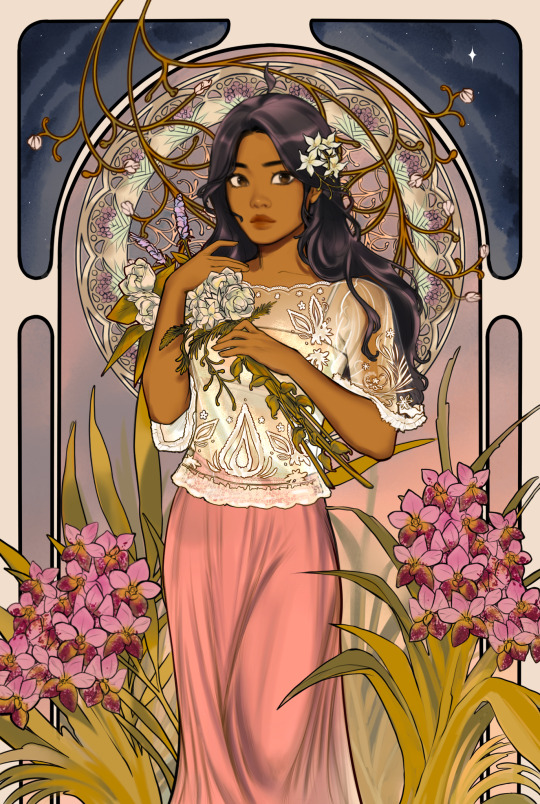
#filipina traditional dress#hws philippines#aph philippines#hetalia oc#hetalia#philippines#art nouveau
316 notes
·
View notes
Text
“poc hetalians” as a poc monoracial filipino wtf is wrong with u 💀💀💀💀
“just watch me 🤓” just watch you what? Deny american war crimes? LOL
"noooo you can't draw Alfred non-white!!!"
POC Hetalians: HAHAHA Just watch me—
#hetalia#holy shit#hetalia america#aph america#racism#why are the ethnic identities of light skinned SEA always in question?#not even in a wasian context
33 notes
·
View notes